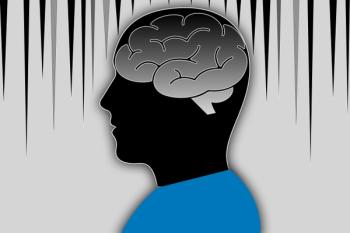
- Vol 35 No 3
- Volume 35
- Issue 3
Genetics in the Clinical Setting: The Role of Psychiatric Genetic Counseling
Practical guidance for psychiatrists who wish to confidently address questions regarding genetics that may be posed by patients and their families.
Premiere Date: March 20, 2018
Expiration Date: July 20, 2019
This activity offers CE credits for:
1. Physicians (CME)
2. Other
All other clinicians either will receive a CME Attendance Certificate or may choose any of the types of CE credit being offered.
ACTIVITY GOAL
To understand the role of stress in the manifestation of depressive symptoms.
LEARNING OBJECTIVES
At the end of this CE activity, participants should be able to:
• Describe the brain circuits associated with depressive symptom clusters
• Identify the multiple functions associated with reward systems (eg, anticipatory, consummatory)
• Explain how the frontal cortex affects cognition in depression
TARGET AUDIENCE
This continuing medical education activity is intended for psychiatrists, psychologists, primary care physicians, physician assistants, nurse practitioners, and other health care professionals who seek to improve their care for patients with mental health disorders.
CREDIT INFORMATION
CME Credit (Physicians):This activity has been planned and implemented in accordance with the Essential Areas and policies of the Accreditation Council for Continuing Medical Education (ACCME) through the joint providership of CME Outfitters, LLC, and Psychiatric Times. CME Outfitters, LLC, is accredited by the ACCME to provide continuing medical education for physicians.
CME Outfitters designates this enduring material for a maximum of 1.5 AMA PRA Category 1 Credit™. Physicians should claim only the credit commensurate with the extent of their participation in the activity.
Note to Nurse Practitioners and Physician Assistants: AANPCP and AAPA accept certificates of participation for educational activities certified for AMA PRA Category 1 Credit™.
DISCLOSURE DECLARATION
It is the policy of CME Outfitters, LLC, to ensure independence, balance, objectivity, and scientific rigor and integrity in all of their CME/CE activities. Faculty must disclose to the participants any relationships with commercial companies whose products or devices may be mentioned in faculty presentations, or with the commercial supporter of this CME/CE activity. CME Outfitters, LLC, has evaluated, identified, and attempted to resolve any potential conflicts of interest through a rigorous content validation procedure, use of evidence-based data/research, and a multidisciplinary peer-review process.
The following information is for participant information only. It is not assumed that these relationships will have a negative impact on the presentations.
Serge Campeau, PhD, has no disclosures to report.
Bruce S. McEwen, PhD, (peer/content reviewer) has no disclosures to report.
Applicable Psychiatric Times staff and CME Outfitters staff have no disclosures to report.
UNLABELED USE DISCLOSURE
Faculty of this CME/CE activity may include discussion of products or devices that are not currently labeled for use by the FDA. The faculty have been informed of their responsibility to disclose to the audience if they will be discussing off-label or investigational uses (any uses not approved by the FDA) of products or devices. CME Outfitters, LLC, and the faculty do not endorse the use of any product outside of the FDA-labeled indications. Medical professionals should not utilize the procedures, products, or diagnosis techniques discussed during this activity without evaluation of their patient for contraindications or dangers of use.
Questions about this activity? Call us at 877.CME.PROS (877.263.7767)
Dr Austin is Associate Professor, Departments of Psychiatry and Medical Genetics, University of British Columbia, Vancouver, BC
Clinicians across all disciplines-including psychiatry-are increasingly feeling pressure to incorporate genetics into their clinical practice. Psychiatrists can find themselves confronted with their patients’ questions about whether genetic testing is an option that might provide useful answers for them. However, many psychiatrists lack confidence in their abilities to integrate genetics into their patient care.
Genetic counseling is a field at the forefront of the integration of genetics into clinical practice across a wide variety of medical specialties. In this article, I draw on experience from our specialist psychiatric genetic counseling service to provide practical guidance for psychiatrists who wish to confidently address the questions regarding genetics that may be posed by patients and their families.
Misconceptions about genetic counseling
Given that there are misconceptions about genetic counseling, before considering what it IS, it is first important to explicitly consider what it is NOT:
1. Genetic counseling is not genetic testing: Genetic counseling does not require genetic testing, nor in fact, even the availability of genetic testing for meaningful patient benefits to be derived from genetic counseling.
2. Genetic counseling is not simply a discussion with a family of a child’s risk for a condition of concern. Within the field of medicine, there is a perception that a conversation between a health care professional and a patient that concerns a child’s risk for an indicated heritable condition is “genetic counseling.” In fact, genetic counseling is a 50-year-old professional discipline, with accredited MSc level training programs throughout North America, certification boards, and in some states, licensure.
The work can involve addressing issues about a child’s risk for a condition of concern when it is relevant; but this constitutes only one facet of a wide range of issues that can be addressed. Genetic counselors work across an enormous range of medical specialties (eg, psychiatry, oncology, neurology, cardiology).
3. Genetic counseling is not a purely educational/informational intervention. Although information is a critical component, ideally the information is not simply delivered, but rather it is a discussion in the context of a psychotherapeutically-oriented encounter.
4. Genetic counseling is not limited to a discussion of the genetic contributions to a specific illness. In the context of a serious illness (eg, a psychiatric disorder), genetic counseling involves discussion of how genes, environmental exposures, and experiences interact to precipitate illness.
Understanding what genetic counseling is1
Genetic counseling in the context of psychiatric disorders
The information-gathering element of psychiatric genetic counseling involves uncovering the patient’s existing explanation for the cause of illness, understanding his or her current illness management strategies, and eliciting and documenting a detailed psychiatric family history.
Patients' existing explanations for the cause of their condition is fundamentally important to genetic counseling. Patients’ existing explanations for the cause of their psychiatric illness (eg, “its my fault that I have schizophrenia, because I smoked too much pot when I was young) often invoke emotional reactions (eg, guilt, shame), which can influence how people engage with treatment. New information regarding the cause of illness is easily rejected if it is not explicitly discussed in the context of the patient’s existing explanation.
The information-provision element of genetic counseling involves using the patient’s personal and family history to contextualize evidence-based information about:
• Factors that have been associated with the development of the indicated condition
• Strategies that individuals might use to protect their mental health (eg, sleep, exercise, nutrition)
• When requested, communicating about risk for family members (eg, existing or potential children) to develop the indicated condition
Because the information that is discussed in genetic counseling is
Genetic counseling-when delivered as described above (that is, without genetic testing)-can produce statistically significant increases in patients’ levels of empowerment and self-efficacy that are of a magnitude (d values of approximately 1 and 0.4 respectively) that suggests clinical significance.4 Indeed, theoretically, psychotherapeutically-oriented genetic counseling enables people to engage in lifestyle modifications that can lead to improved mental health. [see Box]
Genetic testing for psychiatric disorders
At present, there are no genetic tests with which to establish, confirm, or refine a psychiatric diagnosis. And, while
There is no doubt that testing for copy number variation syndromes (eg, 22q11.2 deletion) is appropriate in the context of a known family history of the syndrome, or in the context of a patient who presents with psychiatric illness together with other phenotypic features suggestive of the condition (eg, tetralogy of fallot, hypernasal speech, learning difficulties). However, the utility of screening for copy number variations in all individuals who present with psychiatric disorders as adults is unclear, especially given the frequency of variations of unknown significance and uncertainties regarding psychiatric illness. Although it remains an area of extensive research, there is currently only a single example of
Case Vignette: #1
Psychiatric genetic counseling improves treatment adherence
"Bob," aged 40 years, first experienced mental health problems in his mid-20s and shortly thereafter received a diagnosis of schizoaffective disorder. Since that time, his mental health has generally been poor. Bob’s psychiatrist had prescribed psychotropic medication but Bob felt that he did not need medications to be mentally healthy. Bob sought genetic counseling because he wanted to better understand the causes of his mental illness.
A first step in the counseling process involves asking the patient to describe what he or she perceives to be the cause of their illness. Bob attributed his illness to weak character, and the fact that he had used cannabis extensively as a teenager. He acknowledged the role of genetics in contributing to psychiatric disorders at the level of the population, but didn’t feel that this played a role in his own specific case. He felt that if he could only try harder, he would be OK; his ongoing difficulties made him feel like a failure.
A detailed psychiatric family history was taken showing that both of Bob’s parents had experienced significant mental health problems. Using visual counseling aids, Bob was shown that it was very likely that he had inherited a genetic vulnerability to mental illness from his parents. He broke down and was able to articulate that he felt “that a weight of guilt had been lifted,” and that he could see “for the first time, that perhaps it’s not all my fault.”
One month later, Bob was doing much better psychiatrically than he had in years. This was the result of his thinking about pharmacological treatment. Once he understood that genetics had played a role in his own illness, pharmacotherapy started making sense. He was now taking his medication as prescribed and doing well.
Case Vignette #2:
Psychiatric genetic counseling can engage people in self-care strategies to improve mental health
"Jane," aged 50, had a job she loved and was good at. She also lived with bipolar disorder. Her colleagues knew about it and were very supportive, but her mental health was not good, and she was taking a lot of time off for depression. Jane decided to go for genetic counseling because she was concerned about her daughter’s risk for bipolar disorder, which she felt could happen “any day now.”
When asked what she thought the cause of the bipolar disorder was, Jane’s said simply, “genetics.” She had experienced a slew of really awful events in a very short time before her diagnosis, but didn’t think that this had anything to do with her illness.
The genetic counselor explained that bipolar disorder is caused by the combined effects of genetics and life experiences and showed her how her own experiences may have contributed to the development of the disorder. When Jane understood this, she was horrified. She said that she would never have told anyone that she had bipolar disorder had she known that it was not 100% genetic for fear that they would blame her. Counseling helped her work through the fear and shame-she began to see that the events that had contributed to her illness were not things that anyone could be blamed for. Aside from taking medication, she was not doing much else to take care of her mental health. Jane was advised about sleep, nutrition, exercise, and social support that can be helpful. It was suggested that by using some of these strategies together with her medication, her mental health might improve. Implementing these strategies could also protect her daughter’s mental health too. It was NOT a foregone conclusion that her daughter would receive a diagnosis for the same disorder.
Within a month of counseling, Jane had lost 10 pounds, she was going for a walk every day, she was doing her best to eat a healthier diet, and she was working to get better quality sleep.7 She was going to mindfulness classes with her daughter, and was trying a new medication. Her mental health was much better than it had been in years.
Genetic counseling compared with other interventions
While genetic counseling can certainly be conceptualized as a highly circumscribed and time limited form of psychotherapy, it is distinguishable from other forms of therapy by its incorporation of state-of-the-art understanding of the causes of the indicated condition, and its focus on addressing emotional issues. The impact on patient outcomes of psychiatric genetic counseling vs other therapies has yet to be explored, but compared with a purely educational approach regarding genetic and environmental contributors to illness, outcomes have been found to be better.8
Summary
Genetic counseling is about more than simply genetic testing, and/or having conversations with patients regarding risk to children for developing a condition a family member has experienced. We clinicians might feel that research needs to have established a complete understanding of the genetic underpinnings of psychiatric disorders (or at least a genetic test of clinical utility) for genetic counseling to be relevant. However, clinical experience has shown that patients benefit from psychiatric genetic counseling even without validated evidence.
[Note: The vignettes in this article are fictional, based on a composite of many individuals who have sought psychiatric genetic counseling.]
CME POST-TEST
Post-tests, credit request forms, and activity evaluations must be completed online at
PLEASE NOTE THAT THE POST-TEST IS AVAILABLE ONLINE ONLY ON THE 20TH OF THE MONTH OF ACTIVITY ISSUE AND FOR 18 MONTHS AFTER.
References:
1. Austin J. Psychiatric Genetic Counseling.
2. Resta R, Biesecker BB, Bennett RL for the National Society of Genetic Counselors’ Definition Task Force. A new definition of genetic counseling: National Society of Genetic Counselors’ task force report. J Genet Couns. 2006:15:77-83.
3. Veach PM, Bartels DM, Leroy BS. Coming full circle: a reciprocal-engagement model of genetic counseling practice. J Genet Couns. 2007:16:713-728.
4. Inglis A, Koehn D, McGillivray B, et al. Evaluating a unique, specialist psychiatric genetic counseling clinic: uptake and impact. Clin Genet. 2015;87:218-224.
5. Miller DT, Adam MP, Aradhya S, et al. Consensus statement: chromosomal microarray is a first-tier clinical diagnostic test for individuals with developmental disabilities or congenital anomalies. Am J Hum Genet. 2010;86:749-764.
6. Butcher N, Fung WLA, Fitzpatrick L, et al. Response to clozapine in a clinically identifiable subtype of schizophrenia: 22q11.2 deletions mediate side effect risk and dosage. Br J Psychiatry. 2015:206:484-491.
7. Austin J, Semaka A, Hadjipavlou G. Conceptualizing genetic counseling as psychotherapy in the era of genomic medicine. J Genet Coun. 2014;23:903-909.
8. Hippman C, Ringrose A, Inglis A, et al. A pilot randomized clinical trial of the impact of genetic counseling for individuals with serious mental illness. J Clin Psychiatry. 2016;77:e190-e198.
9. Leach E, Morris E, White H, et al. How do physicians decide to refer their patients for psychiatric genetic counseling? A qualitative study of physicians’ practice. J Gene Coun. 2016;25:1235-1242.
10. Peay HL, Austin JC. How to Talk With Families About Genetics and Psychiatric Illness, 1st ed. New York, NY: WW Norton Co; 2011.
11. Inglis A, Morris E, Austin J. Prenatal genetic counseling for psychiatric disorders. Prenat Diag. 2017;37:6-13.
12. Austin J, Peay HL. Applications and limitations of empiric data in provision of recurrence risks for schizophrenia: a practical review for healthcare professionals providing clinical psychiatric genetics consultations. Clin Genet. 2006;70:177-187.
13. Austin JC, Palmer C, Sheidley B, et al. Psychiatric disorders in clinical genetics II: Individualizing recurrence risks for psychiatric disorders. J Gene Coun. 2008;17:18-29.
14. Ryan J, Virani A, Austin J. Ethical issues associated with genetic counseling in the context of adolescent psychiatry. Appl Transl Genom. 2015;5:23-29.
Articles in this issue
almost 8 years ago
PTSD in Late Life: Special Issuesalmost 8 years ago
Timolol Does Not Cause Psychosisalmost 8 years ago
QT Prolongation and Antidepressantsalmost 8 years ago
Molly’s Game: Poker Hospital and Pathologic Gamblingalmost 8 years ago
The Juggleralmost 8 years ago
Advantageous Adages in Psychodynamic Psychotherapyalmost 8 years ago
Lies, Damn Lies, and StatisticsNewsletter
Receive trusted psychiatric news, expert analysis, and clinical insights — subscribe today to support your practice and your patients.






